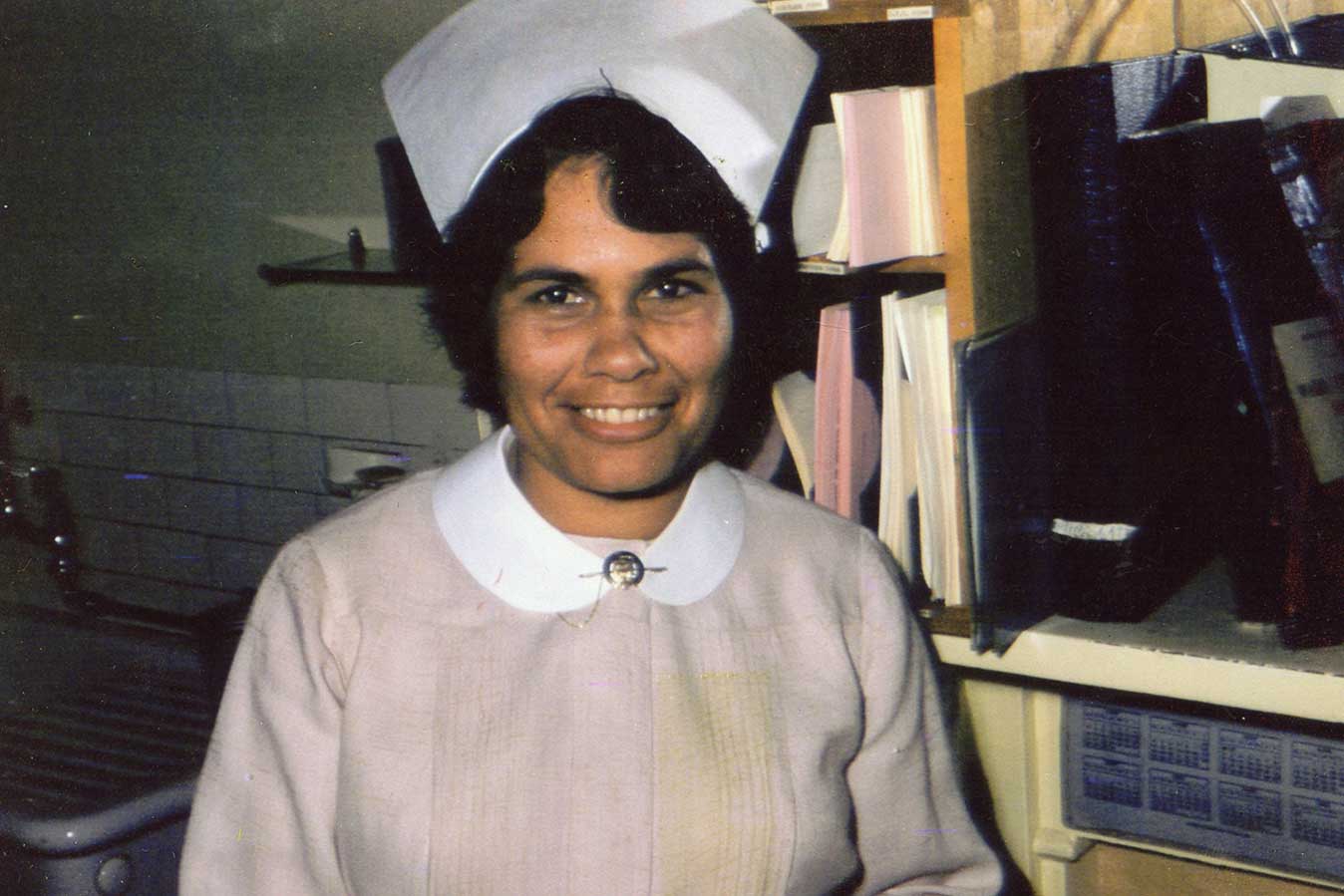Trailblazing Aboriginal and Torres Strait Islander nurse, leader, and rights activist, Dr Lowitja O’Donoghue, passed over the weekend, aged 91.
A proud Yankunytjatjara woman, Dr O’Donoghue leaves behind a remarkable legacy of work underpinned by a fierce and unrelenting drive to improve the health and wellbeing of Aboriginal and Torres Strait Islander peoples.
Among her many achievements, she was the first Aboriginal person to train as a nurse at the Royal Adelaide Hospital, graduating to a staff nurse in 1957. She worked as a registered nurse, mental health nurse and welfare officer for more than 30 years, then in various posts advocating for Indigenous affairs, including as the inaugural Chairperson of the Aboriginal and Torres Strait Islander Commission (ATSIC) from 1990 to 1996.
A pivotal voice throughout key moments in our nation’s history, such as the 1967 Referendum, the Native Title legislation in 1993, and the National Apology to the Stolen Generations in 2008, Dr Lowitja was routinely recognised for her dedication, becoming a Member of the Order of Australia in 1977, and being named Australian of the Year in 1984. And of course, she was the patron, namesake and founding chair of the much-respected Lowitja Institute, Australia’s only national Aboriginal and Torres Strait Islander community-controlled health research institute.

“We adored and admired her when we were young and have grown up full of never-ending pride as she became one of the most respected and influential Aboriginal leaders this country has ever known,” said niece Deb Edwards in a statement released by family.
“Aunty Lowitja dedicated her entire lifetime of work to the rights, health, and wellbeing of Aboriginal and Torres Strait Islander peoples. We thank and honour her for all that she has done – for all the pathways she created, for all the doors she opened, for all the issues she tackled head-on, for all the tables she sat at and for all the arguments she fought and won.”
The Lowitja Institute echoed the sentiments, with patron Pat Anderson describing Dr Lowitja as a visionary whose story is filled with courage, integrity and determination.
“Lowitja was a national treasure,” Ms Anderson said.
“She lived a remarkable life and made an enormous contribution to public life in pursuit of justice and equity for Aboriginal and Torres Strait Islander people and Indigenous people across the globe.
“Courageous and fearless in leading change, Lowitja was continually striving for better outcomes for Aboriginal and Torres Strait Islander peoples. She will remain in my heart as a true friend and an inspiration to Australians for years to come.”
Lowitja Institute CEO, Adjunct Professor Janine Mohamed, said Dr O’Donoghue had been an inspiration to Aboriginal and Torres Strait Islander people throughout her life, defying the barriers placed before her, first as a nurse and then in state, national and international affairs.
“Dr O’Donoghue broke new ground continuously, she brought strength, intelligence and tenacity to critical policy issues over decades, from land rights through to health equity.”
After breaking down barriers to become a nurse, Dr Lowitja flourished in the profession, driven by a motivation to serve, and hopefully one day, help her own people.
Sharing her story the landmark book, In Our Own Right: Black Australian Nurses’ Stories, she recalled the full-circle journey that nursing often delivers, like bumping into old patients she used to look after and returning to Adelaide.
“It is ironic that as the Inaugural Chair of ATSIC, I eventually found myself in Adelaide giving certificates to the last of the hospital-trained nurses at the RAH,” she wrote.
“Nursing has provided me with a rewarding career.”








